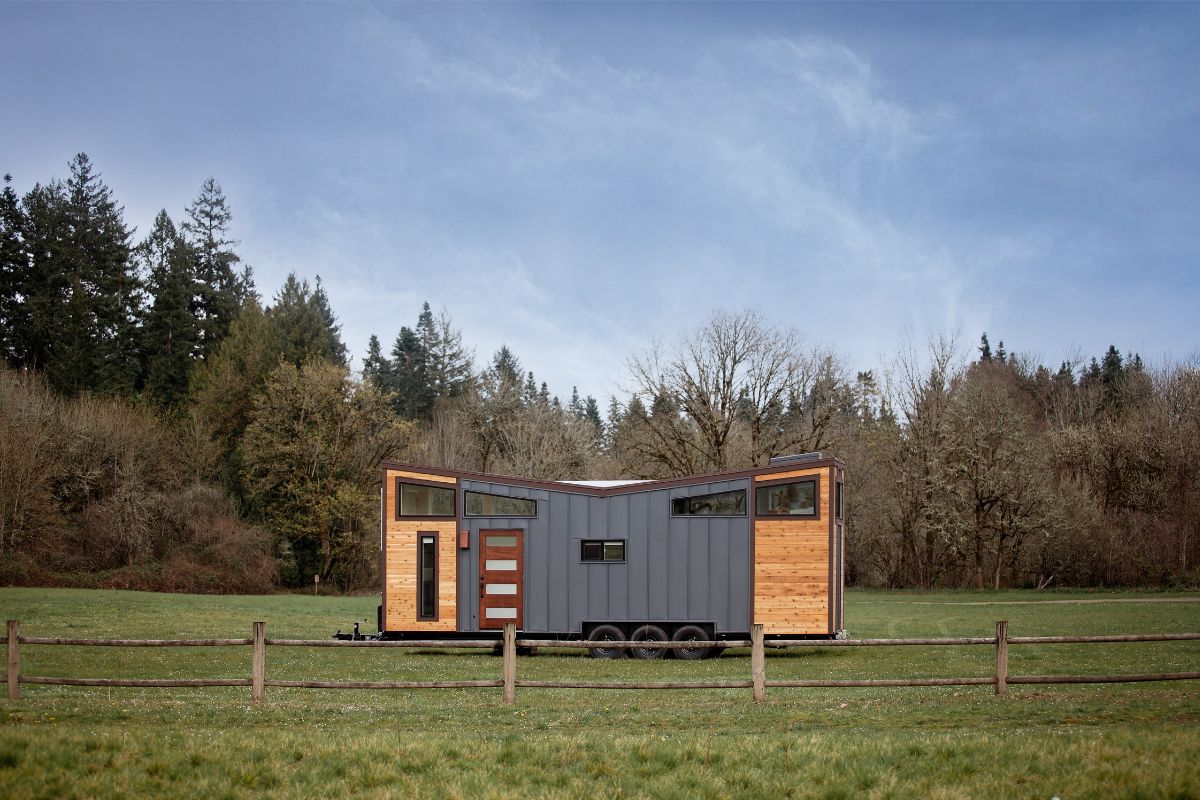Benefits of Tankless Water Heaters with Kay Anderson

Image Source: Canva
Welcome to the evolving world of tankless water heaters—a transformative technology enhancing the way we access hot water in homes, especially in compact living spaces like tiny homes and RVs.
1. Saves space in tiny homes and RVs.
2. Adaptable to various settings and climates.
3. Highly energy-efficient, reducing operation costs.
4. Versatile fuel options including gas and electric.
5. Reduces carbon emissions, environmentally friendly.
In this exploration, we draw upon the insights of Kay Anderson, a seasoned expert from Precision Temp, who brings years of experience and deep knowledge in the field of water heating technology.
Join us as we delve into the practical benefits and advanced features of tankless water heaters that are setting new standards in efficiency and convenience.

Advantages of Tankless Water Heaters
Compact Size
Tankless water heaters excel in their compact design, allowing them to be seamlessly integrated into various living spaces.
Kay Anderson from Precision Temp elaborates, "They can be used in tiny homes, get in vans, and even in bunkhouses." This reduced footprint is particularly advantageous in smaller dwellings and mobile homes where every inch of space matters.
The ability to install these units in unconventional spaces such as closets or under sinks demonstrates their flexibility. This attribute is especially useful in urban apartments or homes where space is at a premium, enabling homeowners to maximize their living area without compromising on the availability of hot water.
Versatility
The versatility of tankless water heaters extends beyond their physical size. According to Anderson, "They can be on sailboats, they've been shipped to the Netherlands and other places. Just like the tiny homes, they're everywhere." This adaptability is crucial for their application in various settings, including seasonal cabins, rural homes, and even food trucks where consistent, reliable access to hot water is essential.
Their ability to operate under diverse conditions and in different climates makes them a universal solution for hot water needs, reflecting their growing popularity across the globe.
Energy Efficiency
Tankless water heaters stand out for their exceptional energy efficiency. Traditional water heaters operate continuously to maintain a hot water supply, but tankless models heat water on demand, thereby reducing energy consumption significantly. Anderson points out the safety and efficiency benefits: "It's safer and more fuel-efficient because you're not continuing to burn whatever your source is."
This on-demand heating means no energy is wasted on heating water that isn't being used, which not only saves energy but also enhances the safety of the home by reducing the risk associated with constant operation.
Fuel Options
Diversity in fuel options offers another layer of flexibility for tankless water heaters. These devices can run on propane, natural gas, diesel, or electricity, allowing users to choose the best fuel based on availability and cost-effectiveness in their region.
Anderson emphasizes the efficiency of the system, "You turn the water on, the burner ignites, you turn the water off, everything turns off. You're not wasting anything." This feature is particularly important for users in remote or off-grid locations where fuel choices are dictated by logistics and availability.
.jpg)
Cost Efficiency
The direct correlation between energy efficiency and cost savings is one of the most appealing aspects of tankless water heaters.
By eliminating the need to heat a large reservoir of water continuously, these heaters significantly reduce monthly energy bills. Anderson captures the economic benefit, stating, "If it's more fuel-efficient, that saves us money. I don't know about everybody else, but I can use my money for something else."
This efficiency translates into tangible savings that can be redirected towards other household expenses or savings goals, making tankless water heaters an economically wise choice over the long term.
Environmental Impact
From an environmental perspective, tankless water heaters offer significant advantages. Their ability to reduce energy consumption directly correlates with lower carbon emissions, supporting a healthier planet. The shift towards using greener fuels like natural gas or electricity further mitigates the environmental impact of these systems.
Anderson's comments underscore the broader implications of choosing energy-efficient appliances, not just for cost savings but also for their reduced ecological footprint. The move towards tankless technology reflects a growing trend in environmental consciousness among consumers, aiming for sustainability in their home heating solutions.
Where to Buy Tankless Water Heaters
Precision Temp's tankless water heaters stand out in the market not only for their efficiency but also for their innovative features. The company offers combo units that provide both heating and hot water, optimizing space and resource usage.
Additionally, Precision Temp supports their customers with incentives like a coupon code "tiny100", which offers a $100 discount on purchases, enhancing affordability and accessibility.
Conclusion
Tankless water heaters represent a smart choice for anyone looking to maximize space, minimize energy consumption, and reduce living costs. With their versatility and range of fuel options, these systems can be adapted to almost any setting, making them ideal for modern, eco-conscious consumers. Further research and consultation with professionals are recommended to choose the most suitable model and configuration for individual needs.









